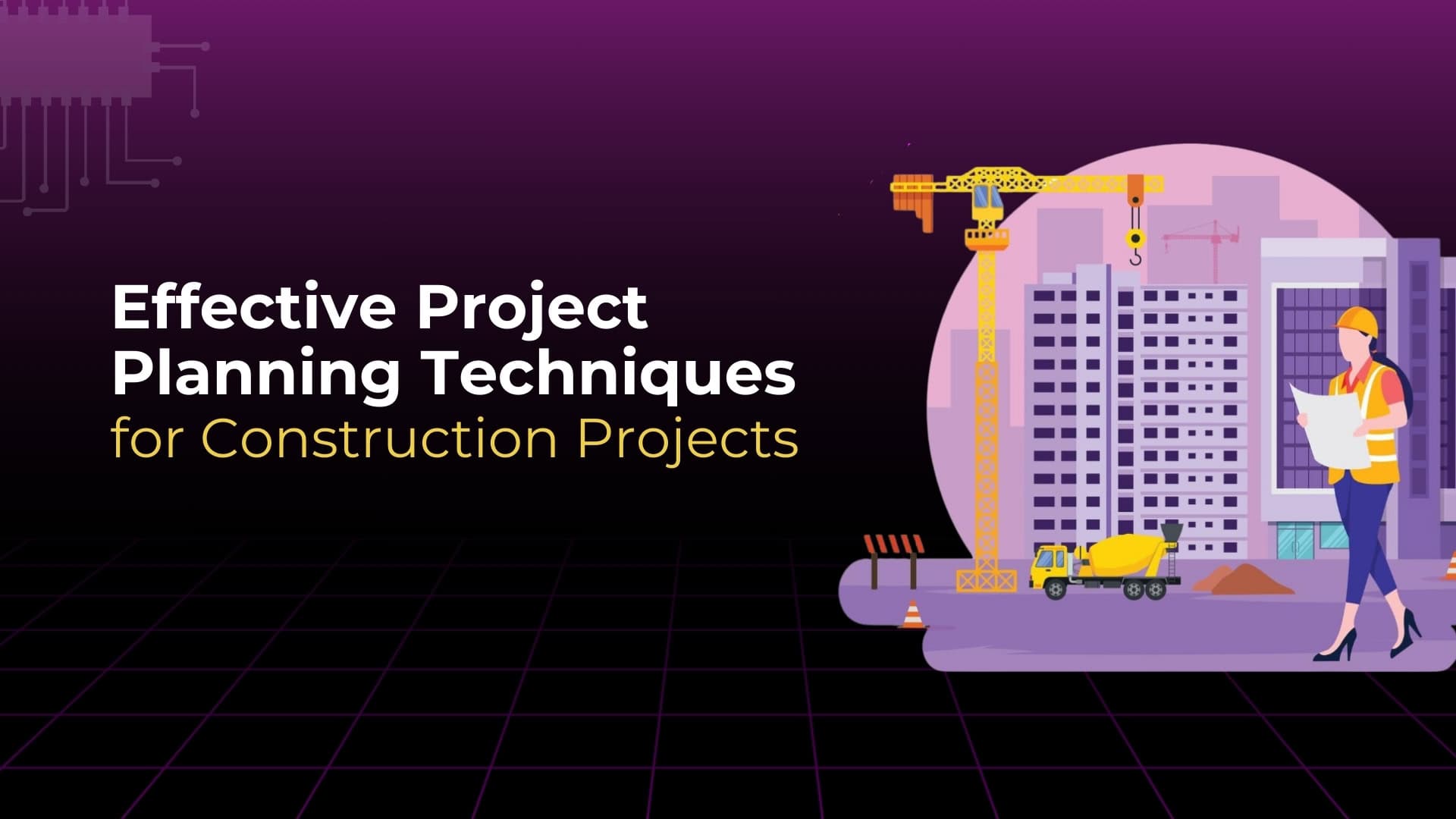Effective Project Planning Techniques for Construction Projects

Construction projects being huge in manner needs proper planning and execution. If the planning isn’t right, execution cannot be. Without outstanding planning, the project can have bad scheduling, can go over budget, and create many troubles for construction businesses. This is why proper planning of construction projects are needed. Let’s get to know some effective project planning techniques for construction projects and benefits of leverage project planning software for construction.
Project Planning Techniques for Construction Projects
1. Define Project Scope Clearly
Defining scope clears the picture of project’s objectives, deliverables, and exclusions. A proper planning of a project helps in keeping aligned multiple people involved in the projects like stakeholder, contractor, business owner, etc. Clearing a scope means less chances of disputes and mishappening. It also prevents unnecessary delays and cost overrun.
2. Leverage project planning software for construction
In the era of modern concepts, construction management software is the most beneficial technology to be applied to managing construction projects. Onsite is one of the best project planning software for construction that helps in tracking progress in real-time, monitor costs, and allocate resources efficiently. With the help of software, all the planning can be executed effectively, and you can see the cost savings by the end of the project.
3. Resource Allocation & Budgeting
Better resource allocation is one of the major factors in construction planning. You need to keep track of all the resources so that resources can be available when needed. Budget forecasting and resource allocation are critical steps in project scheduling. By analyzing data, you can also take future decisions and plan the budget and stay under budget.
4. Implement Regular Progress Tracking & Reporting
Regular progress tracking plays one of the major roles in project planning. With the help of project planning software for construction like Onsite, you can keep track of daily progress which gives you an idea of time that a particular task is taking. With the help of Onsite, you can get real-time updates which helps in better monitoring. You can also have a daily progress report to check progress in future.
5. Effective Communication & Collaboration
By clearly communicating with people involved in a construction project like contractors, business owners, builders, etc, you can plan projects efficiently. Large scale businesses often have multiple teams and keeping them aligned can be a little hard, by centralized communication you can improve your collaboration and keep everyone updates & on the same page. It helps in reducing misunderstanding and delays.
Conclusion
It is very necessary for businesses to have a clear project planning so that future projects can be successful. Above mentioned project planning techniques will help you optimize resources and maintain schedules. In the construction industry, efficiency is necessary, and these techniques help construction projects complete on time, within budget, and to high-quality standards.
Also Read: Streamlining Material Management Processes in Construction
FAQs
1. Why is proper planning necessary for construction projects?
Proper planning is essential because it ensures efficient use of resources, keeps the project within budget, and prevents delays. Without thorough planning, projects may suffer from scheduling issues, budget overruns, and misunderstandings that can lead to costly errors.
2. How does defining the project scope improve project planning?
Defining the project scope clarifies objectives, deliverables, and exclusions for everyone involved—stakeholders, contractors, and business owners. It aligns teams, reduces the chance of disputes, and minimizes delays and unexpected costs by providing a clear roadmap.
3. What role does construction management software play in planning?
Construction management software, like Onsite, provides real-time tracking of progress, resource allocation, and cost management. It centralizes information, helps monitor budgets, and supports project managers in executing plans effectively, ultimately leading to cost savings by project completion.
